Table of Contents
A congressional report released Thursday, February 4, 2021, renews and reinforces parental concerns about the presence of heavy metals in their baby’s food.
The 59-page report, bluntly titled “Baby Foods Are Tainted with Dangerous Levels of Arsenic, Lead, Cadmium, and Mercury,” was issued by a Congressional Subcommittee more than a year after it asked for internal data from seven of America’s largest baby food manufacturers.
Chaired by Rep. Raja Krishnamoorthi, the Subcommittee was spurred into action after Healthy Babies Bright Futures published its own baby food test results, finding heavy metals in 95 percent of the 168 baby foods they tested from 61 different brands.
Since speed in government literally requires an “act of congress,” and since the FDA has long “looked the other way”—never mind that the companies concerned apparently actually see these test results and sell their toxic products anyway—Mom and Dad, unfortunately, it’s up to you to know what to look out for
Here’s some help. Here’s the crux of the 18,000-word congressional report and a few simple suggestions of what you can do about it.

Timeline: Heavy Metals in Baby Foods
- AUGUST 2018: A Consumer Reports investigation of 50 nationally distributed baby and toddler foods finds that “every product” had measurable levels of “at least one” of three heavy metals: Cadmium, inorganic arsenic, or lead, and that organic baby foods were just as likely as conventional foods to contain heavy metal.
- OCTOBER 2019: Healthy Babies Bright Futures issues a report of their national investigation that found 95 percent of the 168 baby foods they tested from 61 different brands contained one or more of four toxic heavy metals—arsenic, lead, cadmium, and mercury.
- NOVEMBER 2019: The Subcommittee on Economic and Consumer Policy requests internal documents and test results from seven of America’s largest baby food manufacturers.
- NOVEMBER 2019 – FEBRUARY 2021: Given 15 months, three of these companies—Walmart (Parent’s Choice and Parent’s Choice Organic), Sprout Organic Foods, and Campbell (Plum Organics), allegedly “refused to cooperate with the Subcommittee’s investigation,” by failing to supply requested internal documents.
- FEBRUARY 2021: The Subcommittee issues a 59-page report detailing how “commercial baby foods are tainted with significant levels of toxic heavy metals” at “multiples higher than allowed under existing regulations for other products,” and stating that “Manufacturers knowingly sell these products to unsuspecting parents” despite internal company standards and tests, and with “no warning labeling whatsoever.”
Definitions:
- Heavy metal: “The term is sometimes used for any toxic metal…”
- PPB: “A weight to weight ratio used to describe concentrations. Parts per billion (ppb) is the number of units of mass of a contaminant per 1000 million units of total mass.”
- Arsenic: “A metallic element that forms a number of poisonous compounds…. Inorganic arsenic is a human poison.”
- Lead: “Lead is an incredibly useful metal, but it is also toxic to humans.”
- Cadmium: “Cadmium is in its elemental form a soft, silver-white metal. Cadmium is not an element that is used by the body, and it is toxic. It mainly affects kidneys and bones. It is also a carcinogen by inhalation. Cadmium can accumulate in the liver, kidneys and bones, which may serve as sources of exposure later in life.”
- Mercury: “a silver-white poisonous heavy metallic element that is liquid at ordinary temperatures and is used especially in batteries, in dental amalgam, and in scientific instruments.”
The Congressional Report In a Nutshell
“I’ve been practicing medicine for 40-plus years. This is the most stunning report that I’ve seen, in many ways. All of those heavy metals have very significant neurotoxicity associated with them. There are in fact no “normal levels,” so any exposure of children to these heavy metals will have a significant impact.” – Dr. Jeffrey Goldhagen, Pediatrician
“What was particularly upsetting is that when one of the companies met with FDA in 2019, they themselves set levels for some of the ingredients of like 200 parts per billion. And what happened when the ingredients exceeded those? They put them into the baby products and sold them anyway.” – Michael Hansen, Consumer Reports Senior Scientist

“This is something that affects childhood development, namely brain development. You may or may not know that during the first one-thousand days of a baby’s development is when the majority of brain development happens. And so during the first 1,000 days, that’s a time where you definitely do not want this baby to be ingesting anything that would slow down brain development, that would lower IQ, or that would, in any way, keep this baby from developing the smartest, quickest-thinking mind possible.” – Dr. Ken D. Berry, MD Family Physician
“Corporate America is literally knowingly poisoning babies. And the regulators at the FDA have known and looked the other way. I’m not kidding.” – Krystal Ball, Journalist and political pundit
Is It Just Baby Food, Or Is Baby Formula Also Laced With Heavy Metals?
The report appears to spend most of its time discussing single ingredients as well as baby foods like puffs, teething crackers, and rice cereals. Infant formulas are mentioned multiple times with reference to the fact the European Union has set maximum levels for lead and cadmium in them, but baby formula only otherwise comes up once, on page 35 of the report, in a portion discussing Nurture misleading the Subcommittee about its testing standards:
“Further, Nurture appears to have misled the Subcommittee about its testing standards. As seen from Nurture’s goal thresholds pictured below, Nurture conveyed to the Subcommittee that after January of 2019, it had a goal threshold of 50 ppb for lead in all of its baby food products—infant formula, cereals, and wet foods. However, in the test results that Nurture provided to this Subcommittee, it was still using 100 ppb as an internal guideline after January 2019.”
But in the report’s executive summary is stated: “On August 1, 2019, FDA received a secret slide presentation from Hain (Earth’s Best Organic)…”
That “secret slide presentation” includes a product display shot of Earth’s Best “Organic Dairy Infant Formula With Iron,” and, pages later, a chart depicting “Earth’s Best Portfolio Overview: Birth to Backpack” showing a lineup of products that begin with Infant Formula.
Given the “egregious behavior by these companies,” there’s no reason at all to believe this doesn’t apply to infant formula as well.
PARENTS reports that in 2017, the Clean Label Project bought 500 infant formulas, baby foods, snacks, and cereals and found that “about 65 percent of them” contained arsenic, among other heavy metals and misleading claims.
Baby Food Brands Containing Toxic Heavy Metals:

01. HappyBaby (Nurture)
- Sells ALL products tested, “regardless of how much toxic heavy metal the baby food contained.”
- Sells baby foods that tested as high as 180 ppb inorganic arsenic
- “Nurture sold products that tested as high as 641 ppb lead—over six times higher than its internal limit of 100 ppb lead.”
- “Only Nurture routinely tested its finished product for lead.”
- Sells baby products testing as high as 641 ppb lead
- Almost 20 percent of baby food products they tested contained over 10 ppb lead
- Sixty five percent of their finished baby food products contained more than 5 ppb cadmium
- Sells baby food products containing as much as 10 ppb mercury
- Company Response: Following the report’s release, the company said “all Happy Family Organics products are safe for babies” and they pride themselves on “best-in-class testing protocols.”
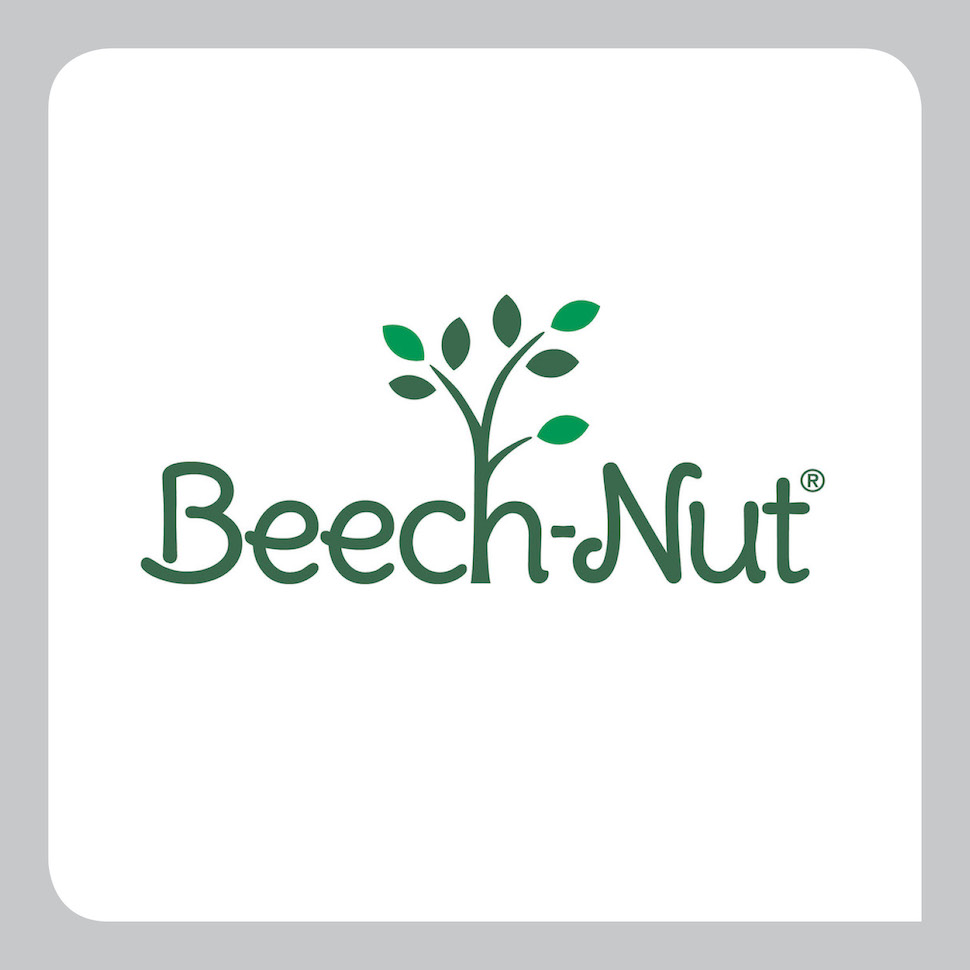
02. Beech-Nut
- Used ingredients that tested as high as 913.4 ppb arsenic
- “Routinely used” high-arsenic additives testing over 300 ppb
- Used ingredients as high as 886.9 ppb lead
- Used 105 ingredients testing over 20 ppb cadmium, some testing as high as 344.55 ppb
- Does “not even test for mercury in baby food.”
- Company Response: Following the report’s release, Beech-Nut “wants to reassure parents” that their products are “safe and nutritious.”
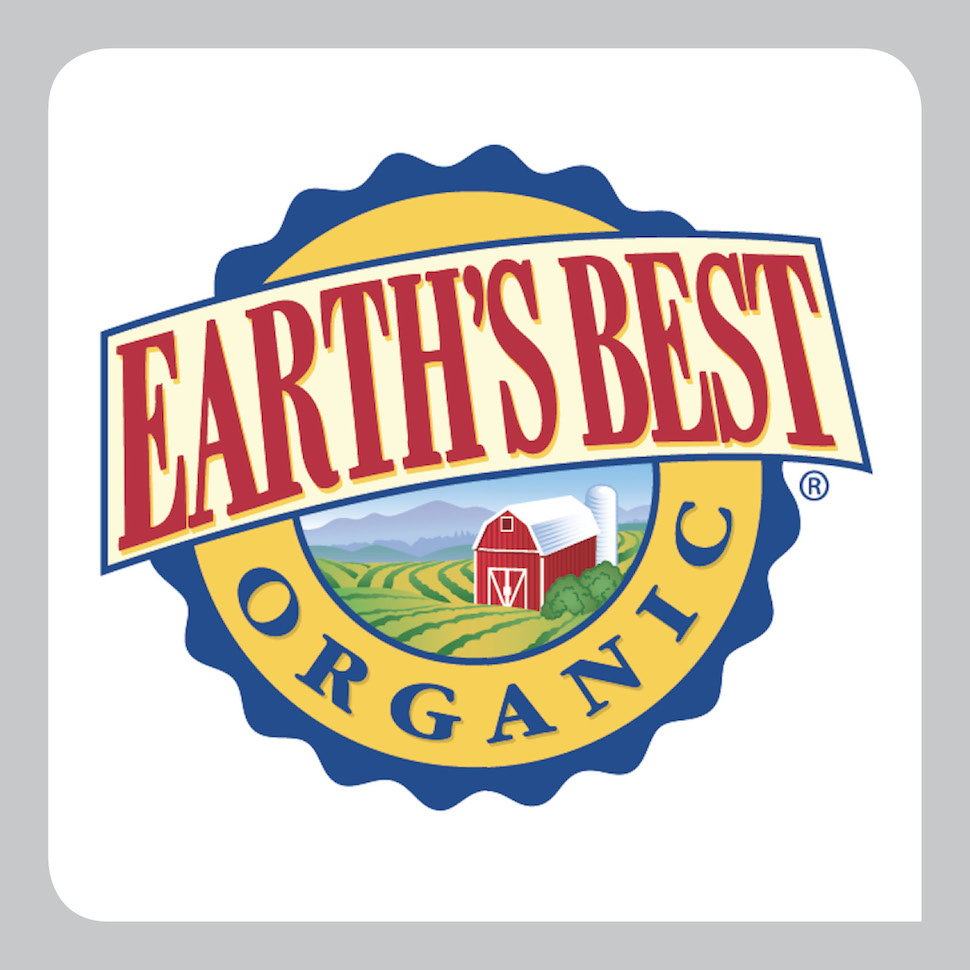
03. Earth’s Best Organic (Hain)
- Sells finished baby food products testing as high 129 ppb inorganic arsenic.
- Uses ingredients “containing as much as 352 ppb lead.”
- Used 102 ingredients in its baby food that tested over 20 ppb cadmium, with some testing up to 260 ppb.
- Does “not even test for mercury in baby food.”
- Company Response: Company spokesperson says Subcommittee “examined outdated data” that don’t “reflect our current practices.” (And that the “secret slide presentation” may not have been so secret after all.)
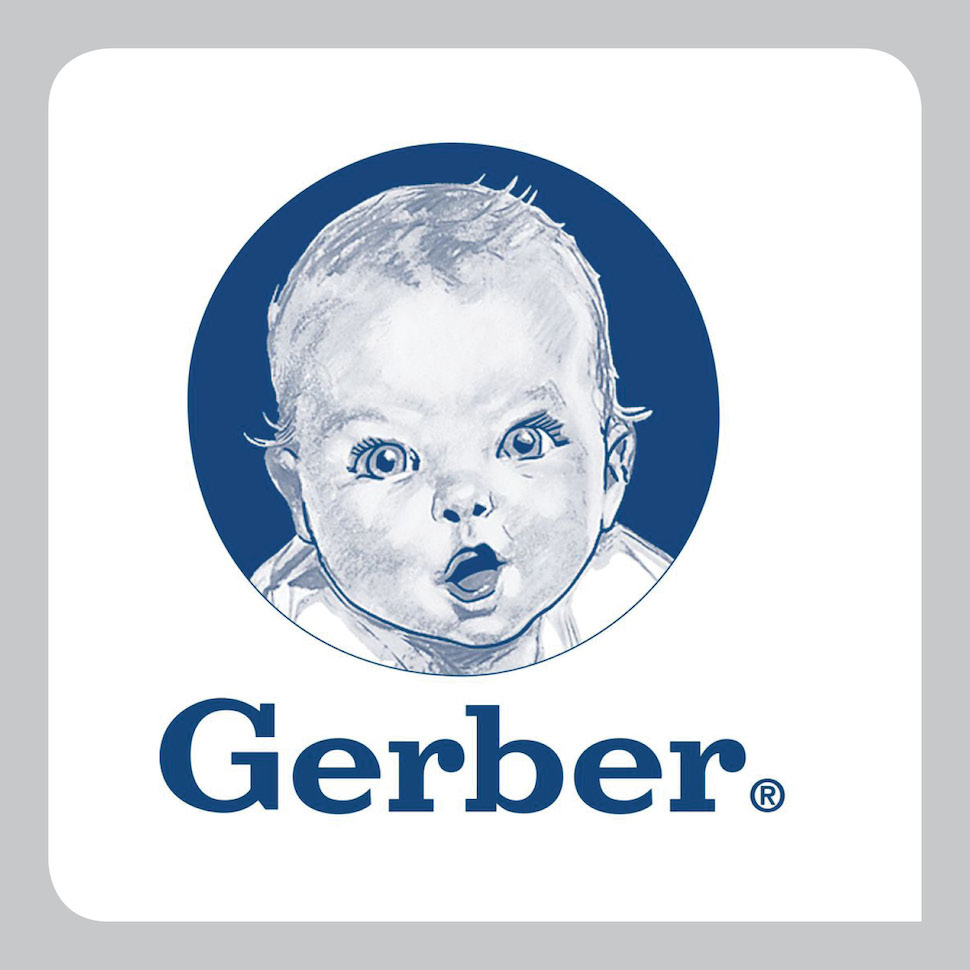
04. Gerber
- “Gerber routinely used flour with over 90 ppb inorganic arsenic.”
- Uses ingredients testing as high as 48 ppb lead
- “Gerber rarely tests for mercury in its baby food.”
- “Gerber incorporated in its products juice concentrate with high arsenic levels.”
- “Gerber does not test all its ingredients for cadmium. Of those it does test, it accepts ingredients with high levels of cadmium.”
- Company Response: Gerber subsequently claimed its safety and standards are “among the strictest in not just the US, but the world.”
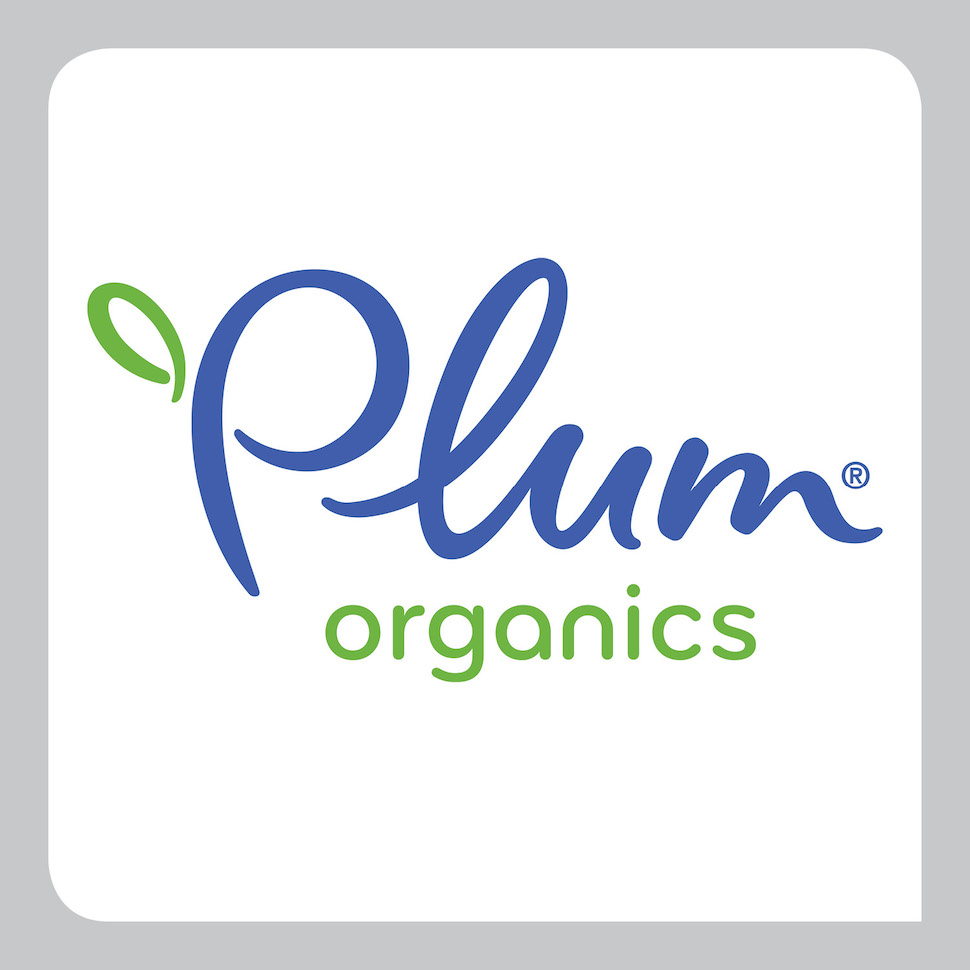
05. Plum Organics (Campbell)
- “Campbell refused to produce its testing standards and specific testing results to the Subcommittee.”
- “Campbell has hidden its policies and the actual level of toxic heavy metals in its products.
- “…refused to cooperate with the Subcommittee’s investigation”
- “The Subcommittee is greatly concerned that their lack of cooperation might obscure the presence of even higher levels of toxic heavy metals in their baby food products, compared to their competitors’ products.”
- Company Response: “Campbell has conducted testing on every Plum Organics product on the market to ensure none exceed acceptable levels of arsenic, lead, cadmium, or mercury.” – Campbell spokeswoman to FoodNavigator, 5 Feb 2021
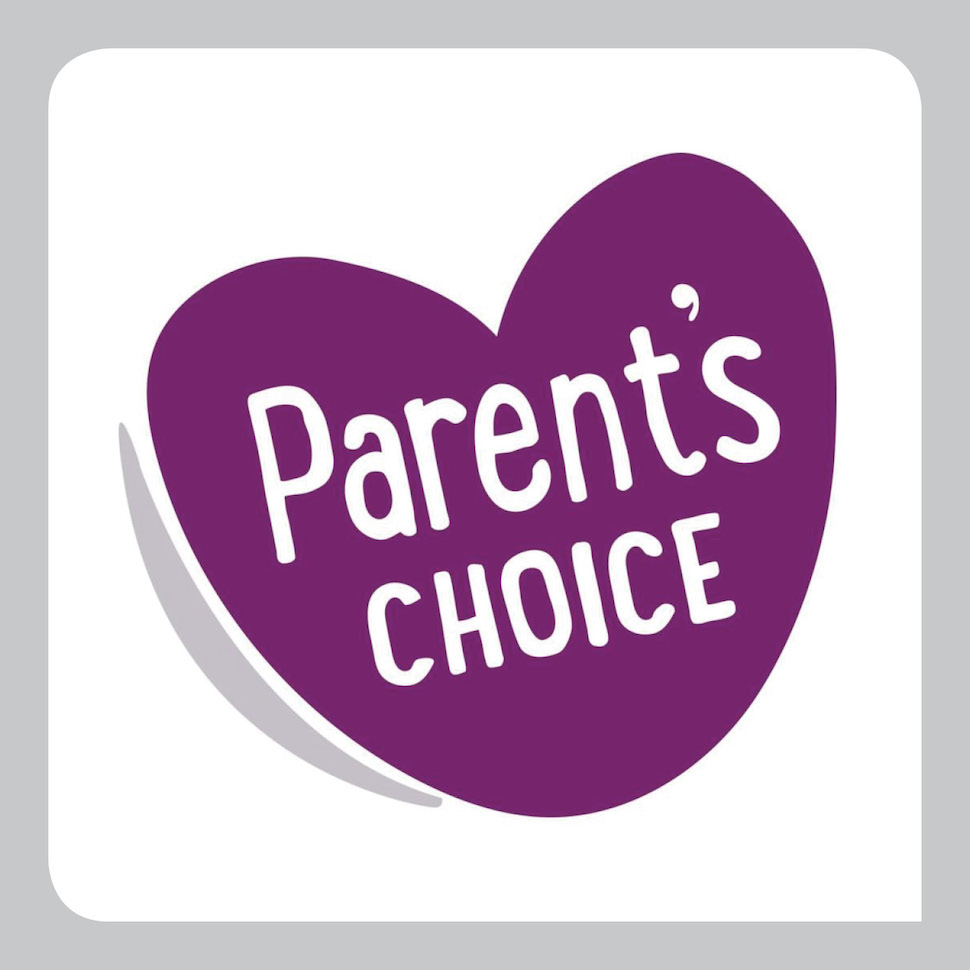
06. Parent’s Choice (Walmart)
- “Walmart… refused to cooperate with the Subcommittee’s investigation.”
- Independent testing confirms their baby foods contain “concerning levels of toxic heavy metals.”
- “Walmart refused to produce any documents showing its internal testing policies, its testing results, or how Walmart treats ingredients and/or products that surpass any internal standards.”
- “Walmart’s evasion is concerning, as even limited independent testing has revealed the presence of toxic heavy metals in its baby food.”
- Company Response: Walmart evidently “provided information to the subcommittee nearly a year ago and invited more dialogue on this important issue but never received any additional inquiries,” according to FoodNavigator.
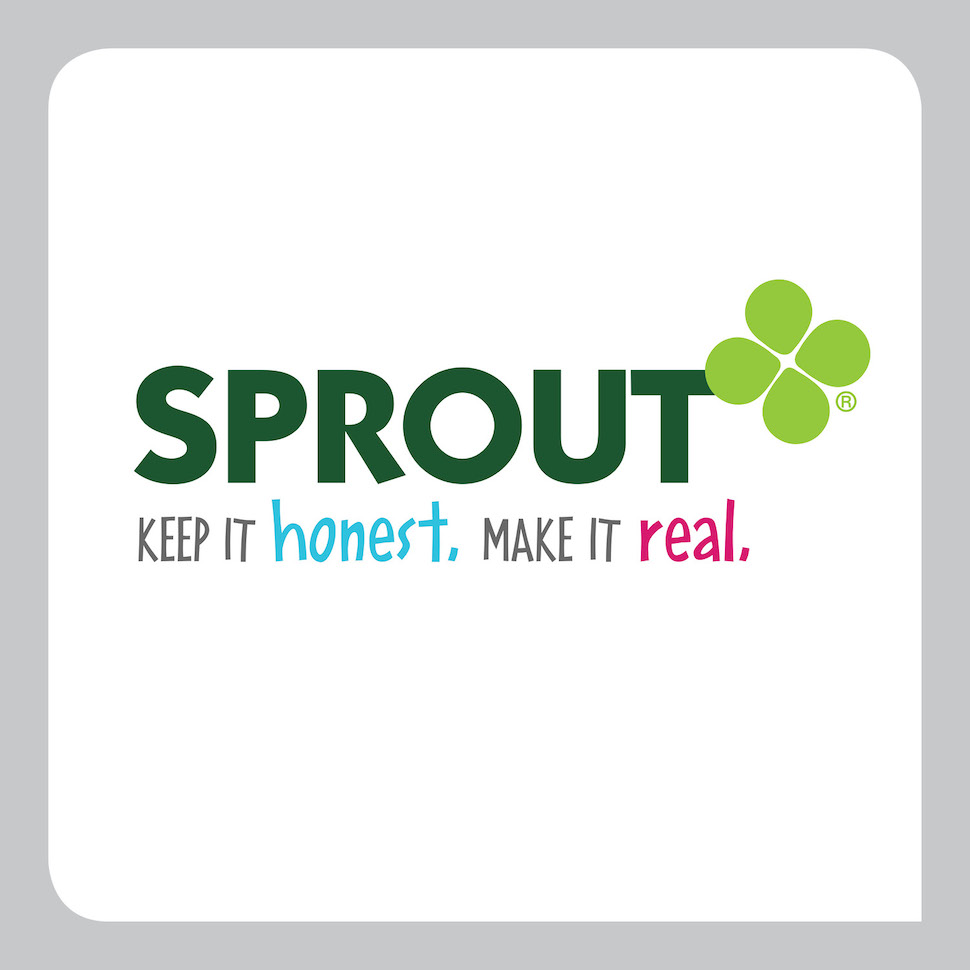
07. Sprout Organic Foods
- Independent testing of Sprout Organic Foods has “confirmed that their baby foods contain concerning levels of toxic heavy metals.”
- “Did not respond to the Subcommittee at all,” despite “numerous attempts;” “never responded or made contact with the Subcommittee.”
- “Sprout’s failure to respond raises serious concerns about the presence of toxic heavy metals in its baby foods, as even limited independent testing has revealed the presence of toxic heavy metals in its products.”
Baby Foods With Heavy Metal Content
- Puffs and other snacks
- Teething biscuits and rice rusks
- Infant rice cereal
- Fruit and vegetables, mixed fruit and vegetables
- Infant formula
- Other drinks for toddlers and babies
The Congressional Report discussed a number of baby food ingredients with high heavy metal content and depicted a handful of actual baby food products that tested high in toxic heavy metals, which are:
“Walmart (Parent’s Choice) Baby Food That Tested High in Toxic Heavy Metals” – Subcommittee Report
Parent’s Choice Organic Strawberry Rice Rusks:
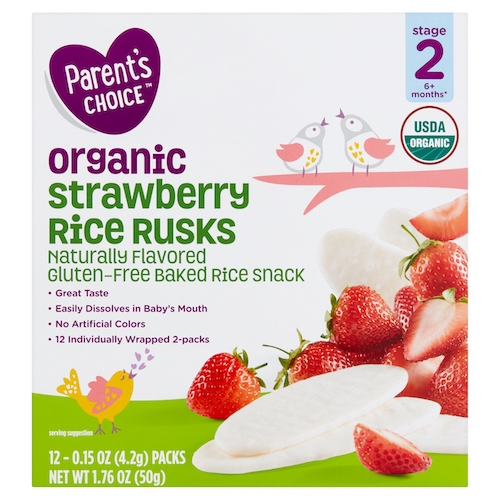
“Plum Organics’ Foods That Tested High in Toxic Heavy Metals” – Subcommittee Report
Plum Organics Little Teethers, Banana with Pumpkin:
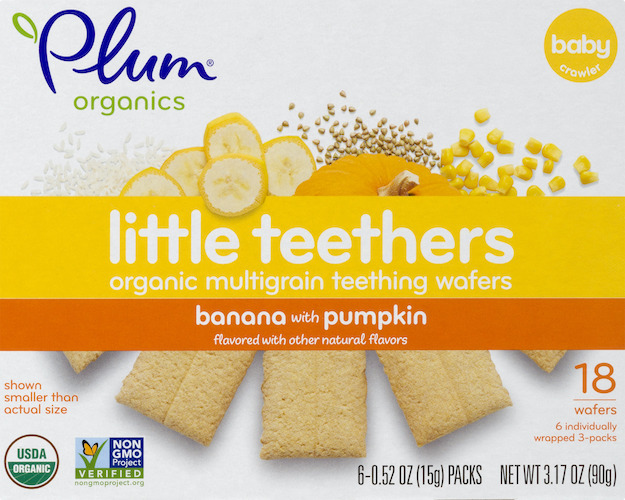
Plum Organics Mighty Morning Bar, Blueberry Lemon:
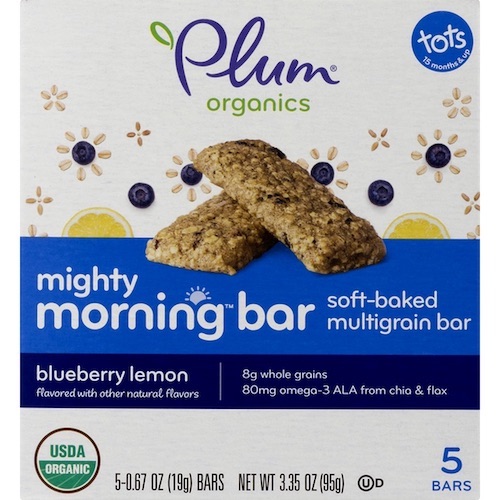
“Sprout Organic Food That Tested High in Toxic Heavy Metals” – Subcommittee Report
Sprout Organic Plant Power Puffs, Apple Kale:
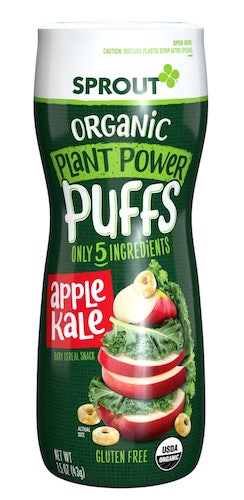
What’s Wrong With Heavy Metals In Baby Foods? Everything.
According to the Congressional report, heavy metals can cause or contribute to:
- Permanent decreases in IQ
- Diminished future economic productivity
- “Untreatable and frequently permanent” brain damage
- “Illness, impairment, and in high doses, death”
- Increased risk of future criminal and antisocial behavior
- Serious and often irreversible damage to brain development
- Dangers to human health, “particularly to babies and children, who are most vulnerable to their neurotoxic effects.”
- “Neurological and immunological effects, as well as damaging effects on the central nervous system and cognitive development in children.”
- “FDA cautions that infants and children are at the greatest risk of harm from toxic heavy metal exposure.”
15 Ways to Reduce Heavy Metals in Your Baby’s Diet

- Choose rice-free packaged snacks that can have 93% less toxic heavy metals in the. “Better yet, try these healthy snacks with fewer contaminants recommended by Consumer Reports: apples, applesauce (unsweetened), bananas, barley with diced vegetables, beans, cheese, grapes (cut lengthwise), hard-boiled eggs, peaches, and yogurt.”
- Replace the #1 source of inorganic arsenic in your baby’s diet, infant rice cereal, with other cereals, which can have 84% less inorganic arsenic. “Choose other cereals that are naturally low in arsenic, like oatmeal and multi-grain,” they say.
- Instead of teething biscuits and rice rusks, try other foods for teething as they have 91% less toxic heavy metals. “Try a frozen banana,” or a “peeled and chilled cucumber.”
- Replace pre packaged fruit juices with tap [or bottled] water, which can have 68% less toxic heavy metals. “Tap water and milk are better drinks for thirsty toddlers. Serve whole or pureed fruits (like applesauce) instead of fruit juice, for more healthy fiber and nutrients. Doctors advise avoiding fruit juice altogether in a baby’s first year,” says Healthy Babies Bright Futures.
- Finally, vary your baby’s diet for up to 73 percent less toxic heavy metals from certain fruits and vegetables—carrots and sweet potatoes, which are high in two toxic metals, lead and cadmium. “Variety is the solution: give your baby these plus other fruits & veggies during the week, for benefits without the excess risk.”
- Limit rice and sweet potato products as they tend to absorb more pollutants due to the way they’re grown.
- Avoid snacks like crackers and puffs. Consumer Report’s investigation found they had higher levels of heavy metal.
- Vary your child’s diet.
- “You want to minimize the risk. You can’t eliminate it entirely, but you can minimize it and there are steps that you can take.” – James Dickerson, Consumer Reports
- Throw any of these products away [Baby foods from the seven companies mentioned in the congressional report.]
- It might be best to make your own baby food at this time
- Vote with your dollars: spend elsewhere
- Stop buying baby food from these seven companies
- Feed your baby the same food you’re eating. (Workable for “99 percent of babies” between 4 and 7 months.” (Baby Led Weaning)
- Avoid baby foods that “contain ingredients testing high in toxic heavy metals, such as rice products.”
Suggestions 1 – 5 are adapted from the nonprofit, Healthy Babies Bright Futures, suggestions 6 – 9 are from James Dickerson of Consumer Reports; suggestions 10 – 11 are from Pediatrician, Dr. Jeffrey Goldhagen; suggestions 12 – 14 is from Family Physician Dr. Ken D. Berry, MD; and suggestion 15 is from the Congressional Subcommittee report.
Frequently Asked Questions

Q. What companies refused to cooperate with the Subcommittee’s Investigation?
A. Three of the 7 national baby food manufacturers that were asked for internal test results and policies evidently “refused to cooperate” with the Subcommittee’s Investigation:
- Walmart, maker of Parent’s Choice and Parent’s Choice Organic baby food products
- Sprout Organic Foods
- Campbell, maker of Plum Organics baby food products
The Subcommittee stated it was “greatly concerned” their lack of cooperation could be concealing “even higher levels of toxic heavy metals” in their baby food.
Q. What companies cooperated with the Subcommittee’s Investigation?
A. Four of the 7 national baby food manufacturers that were asked for internal test results and policies provided satisfactory information to the Subcommittee:
- HappyBABY by Nurture, Inc.
- Beech-Nut
- Earth’s Best Organic
- Gerber
Q. Which baby food has heavy metals?
A. Using these company’s own internal test result records and documents they provided, as well as past records of independent testing, a February 2021 Congressional subcommittee found heavy metals in baby food products from America’s 7 largest baby food manufacturers: Parent’s Choice, Sprout Organic Foods, Plum Organics, HappyBABY, Beech-Nut, Earth’s Best Organic, and Gerber. A prior independent investigation by nonprofits and watchdog groups found that up to 95 percent of baby foods have detectable levels of heavy metals.
Q. How do heavy metals get into baby food?
A. Plants used in the manufacture of baby food ingredients can absorb metals such as arsenic and lead from the dirt and water with which they’re grown. Ingredients can also become contaminated in storage, processing, or transport.
For example, rice is used in a tremendous number of baby foods, and rice fields are flooded in water, causing arsenic in the soil and water to leach into the rice. Arsenic was also heavily used in some past pesticides and inorganic arsenic can persist in the soil indefinitely.
Q. What is the difference between “organic” and “inorganic arsenic”?
A. Organic in this sense refers to a more molecularly complex but naturally occurring form of arsenic that is harmless. “Inorganic arsenic” has a simpler molecular structure but is highly toxic.
Q. Is heavy metal good for babies?
A. Heavy metals are not good or safe for consumption by babies and can lead to serious neurological damage, decreased IQ, low future earnings potential, illness, impairment, and even death, according to a February 2021 congressional subcommittee staff report that analyzed internal documents of America’s largest baby food manufacturers.
Q. Does organic baby food contain heavy metals?
A. In a February 2021 Congressional Subcommittee investigation, 57 percent of America’s seven largest baby food manufacturers marketed, labeled, and sold “organic baby foods” that actually contained high levels of heavy metal. (4 out of 7 baby food manufacturers: Earth’s Best Organic, Plum Organic, Parent’s Choice Organic, and Sprout Organic Foods.
References:
- “Baby Foods Are Tainted with Dangerous Levels of Arsenic, Lead, Cadmium, and Mercury,” Staff Report, Subcommittee on Economic and Consumer Policy Committee on Oversight and Reform, U.S. House of Representatives, February 4, 2021
- Press Release, “Oversight Subcommittee Staff Report Reveals Top Baby Foods Contain Dangerous Levels of Toxic Heavy Metals” February 4, 2021
- FoodNavigator, Baby food brands defend protocols as congressional report alleges ‘highly dangerous’ levels of heavy metals in infant foods; expect lawsuits, says attorney, 5 February 2021
- What’s in my baby’s food?, Healthy Babies Bright Futures, Jane Houlihan, Research Director and Charlotte Brody, National Director, October 2019
- Heavy Metals in Baby Food: What You Need to Know, Consumer Reports, August 16, 2018
- “Secret Slide Presentation”
- “Krystal Ball: Corporations Are POISONING Babies While Regulators Look The Other Way” February 8, 2021
- BABY FOOD Dangers (which BRANDS) What You Can Do, Ken D Berry, MD
- Definitions: Heavy metals, PPB, Arsenic, Lead, Cadmium, Mercury.


